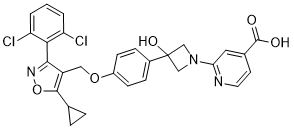In up to 80% of infected patients, HCV established persistent infection, often leading to liver cirrhosis and hepatocellular carcinoma. Additionally, HCV infection can induce non-hepatic diseases such as type II diabetes. Current therapy is carried out with peg-interferon plus ribavirin, but only a portion of patients can eliminate the virus, and the outcome of treatment is dependent on the viral genotype. Stroke is the second leading cause of death worldwide. It is becoming a great health burden in most industrialized countries in future decades. Conventional risk factors for stroke include cardiac diseases, hypertension, diabetes, smoking, alcohol consumption, unhealthy diet, abdominal obesity, lack of exercise, psychosocial stress and depression. Increased evidence indicates that acute and various chronic infectious diseases are important triggers of or risk factors for stroke. However, the association of HCV infection and stroke is not well established. Several epidemiological studies have demonstrated that chronic HCV infection is an independent risk factor of stroke or cerebrovascular death. However, Younossi et al. did not find an association between HCV and stroke. Until present, there has been no systematic analysis performed yet. We therefore decided to conduct a meta-analysis of published case-control and cohort studies, which permitted to evaluate the role of HCV infection in stroke. In addition to providing a greater understanding about the association between HCV infection and stroke, the finding of the meta-analysis might also give suggestion for future research and help inform clinical practice guidelines. As we know that the result of a single research may be affected by many factors, in order to reduce the bias and increase the efficiency of the small sample study of statistics, meta-analysis was performed to further explore the relationship between stroke and HCV infection. Six studies estimated the risk of stroke in HCV infected  population were identified. The final analysis suggested that HCV infection increased the risk of stroke with statistical AbMole Nortriptyline significance. To our knowledge, this was the first to attempt to synthesize the existing world literature to evaluate the effect of HCV infection on stroke. The mechanism by which HCV may favor stroke is not known. Increasing evidence has showed that chronic HCV infection increased the risk of ultrasonographically defined carotid intima-media thickness and or plaque, which are predictors of cerebrovascular disease. It is well-known that chronic inflammation plays an important role in the instability of plaque. It was also found that HCV replicated with carotid plaque. AbMole Succinylsulfathiazole Beyond, HCV infection also increased the risk of metabolism diseases, such as type II diabetes.
population were identified. The final analysis suggested that HCV infection increased the risk of stroke with statistical AbMole Nortriptyline significance. To our knowledge, this was the first to attempt to synthesize the existing world literature to evaluate the effect of HCV infection on stroke. The mechanism by which HCV may favor stroke is not known. Increasing evidence has showed that chronic HCV infection increased the risk of ultrasonographically defined carotid intima-media thickness and or plaque, which are predictors of cerebrovascular disease. It is well-known that chronic inflammation plays an important role in the instability of plaque. It was also found that HCV replicated with carotid plaque. AbMole Succinylsulfathiazole Beyond, HCV infection also increased the risk of metabolism diseases, such as type II diabetes.
Though certain types of fish with high level of contaminants need to be avoided
Leave a reply